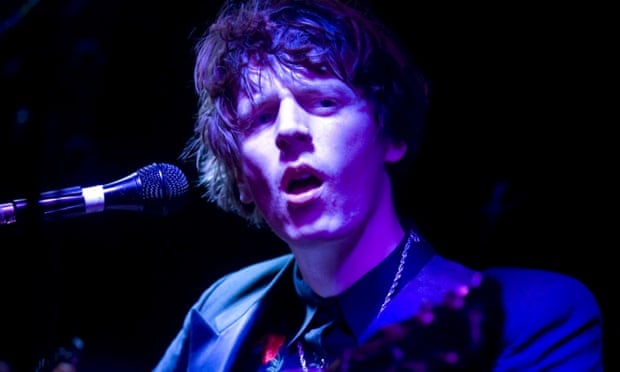
As charity Attitude Is Everything signs up its 100th venue to its Charter of Best Practice, Mystery Jets frontman Blaine Harrison explains how far venues have come in welcoming deaf and disabled fans – and how far there is to go
I first came across Attitude Is Everything while watching Radiohead from a platform for disabled people at Earls Court, in London. Suzanne Bull explained that she had established AIE to improve disabled access to live music. I told her I was in a band, and that we would be delighted to perform at their next Club Attitude event. At that show, a hearing loop for people who are hard of hearing was hooked up to the sound desk and someone translated the lyrics into sign language. The venue was step-free and the dancefloor was full. It was an inspiring night, and we felt really good to be a part of it.
After playing at and attending several more Attitude events, I was delighted to join Robert Wyatt, one of my heroes, as a patron of the charity. Attitude has brought about change by working with audiences, artists and the music industry to implement a charter of best practices across the UK, which outlines steps that venues need to take in order to be accessible to deaf and disabled audiences and performers.
This week, AIE passed a milestone, with the 300-capacity Boileroom in Guildford, joining 99 other UK festivals and venues – including the likes of Glastonbury, Latitude, the Roundhouse, Koko and Brixton Academy – as an establishment that demonstrates a commitment to a more diverse audience.
The fact that the 100th commendation has gone to an independent club is significant. Small venues are the lifeblood of the UK’s music community. This autumn alone, three clubs where I played some of my earliest gigs with Mystery Jets – London’s Madame Jojo’s and the Buffalo Bar and the Cockpit in Leeds – have closed or are closing their doors. However, small venues can still do a lot, without spending much money, to ensure disabled fans don’t miss out.
The Boileroom in Guildford All-access pass … the Boileroom in Guildford is the latest to join Attitude Is Everything’s list of accessible venues
Many people may think of access as only relevant to large arenas and events, because it involves costly renovations or rebuilding. In fact, access is a far broader term, one that comes down to inclusion: providing information about accessibility, good customer service, free entry to assistants, and making deaf or disabled fans feel welcome and involved.
I grew up with spina bifida, which put a cacophony of obstacles between me and the able-bodied world. Ham-headed school bullies rarely needed much provocation to pick on the “special” kids, and I suffered several years of misery. But I also learned to fight back, refusing to allow my perception of life to be shaped by the minds of others. It was this realisation that brought music into my life, and the people I needed to meet to make it happen.
My early years on the road with Mystery Jets were gloriously feral, but brought their own challenges when I sustained a foot injury and had to tour the UK toilet club circuit in a wheelchair. Four weeks of nurses grudgingly changing my beer-soaked bandages and harass ed roadies carrying me up flights of stairs to dressing rooms took all the fun out of what should have been the best job in the world. For the first time, I saw how ill-suited many UK venues were, not only to disabled audiences, but to performers. Thankfully, even in the past five years, the situation has improved enormously.
AIE’s work is close to my heart. I strongly feel that, whether it’s watching friends jamming out at a local venue or going to see a favourite band when they come to town, gigs should be accessible to everyone. One way I support Attitude’s work is by being selective about the venues my band play at. We have a fantastic booking agent, who works with promoters to make sure our tours are as accessible to audiences as possible.
I would like to see more independent venues follow the Boileroom’s example and take stock of what they can do to join the charter. Attitude Is Everything are suggesting three simple, cost-effective steps small venues can take to double their disabled audiences. For me, it is also really important that as many artists as possible show their support by backing these changes. The barriers are there to be broken down.